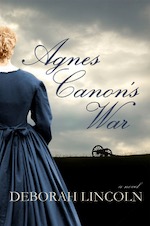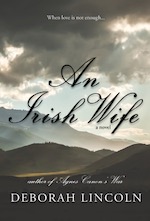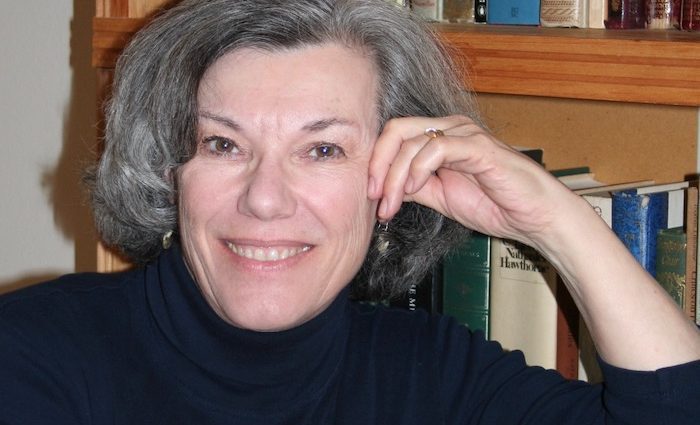How can anyone—a bureaucrat, a librarian, a gardener, a writer—be both so undisciplined and so anal?
Contradiction is, I suppose, a necessary element in writing fiction. It can lead to tension in the plot, conflict among the characters, doubts and fears in the protagonist.
Probably not so helpful when the author herself is riddled with them.
But contradiction is a fact of life. So are procrastination, self-doubt, lack of motivation . . . all of which are elements of the witches’ brew I deal with as a writer.
Procrastination May Be My Biggest Stumbling Block
Procrastination may be the biggest stumbling block.
It took me a week to tackle this task for Writing and Wellness. And I have four other writing projects waiting on the back burner, including my next book.
It’s easier to say, “The last book has just been released (well, four months ago is just, right?) and I get to take a break.”
Well, no.
Don’t Take a Break—Keep at It!
Jumping to another topic we touch on here—Advice to a Young Person Who Wants to Be a Writer: DON’T take a break. Keep at it. Daily, if you can. Five minutes, an hour.
On the computer, with pen-and-ink, talking into a recorder. There’s a line in Pride and Prejudice where Elizabeth comments to Darcy about her own mediocre piano-playing: “. . . but then I have always supposed it to be my own fault—because I would not take the trouble of practising.”
That comment teases me every time I procrastinate.
My Cure for Procrastination—Find a Passage in a Book You Admire And…
The only cure I’ve found for that—besides self-discipline, which is in short supply—is to find a passage in a book I admire and would like to emulate and type it out.
I put the passage from some brilliant author in one column, then in the second column I begin to write my own scene, using the rhythm and a similar event to carry forward my story.
That, of course, can easily lead to plagiarism, but I find that my own story takes over fairly quickly and my own words and constructions and characters go off on their own merry way and soon bear no resemblance to the words of the original brilliant author.
And since the final editing process is usually six or ten drafts down the road, plagiarism doesn’t raise its ugly head. (There was, several years ago, a news item about a young author charged with plagiarism. “I was learning my craft,” he said. I understood.)
My Solution to Writing-Inspired Arm, Back, and Leg Pain
Physically, my problem is arm pain (and back pain and knee pain and eye strain).
But my arm: I have lymph edema, which is a result of radiation treatments many years ago for breast cancer (long gone; no problem now) which affected the lymph system in my right arm and makes it swell.
I’m forced to baby it as if it weren’t a part of me, but a vulnerable little being that needs to be coddled. It hurts when I type too much, but even more if I write by hand.
The solution is to take breaks, do stretches, wear a pressure sleeve. And get a massage, which of necessity must include legs and back and pure heavenly all-over goodness.
I Couldn’t Bear For the Story to be Lost
Historical fiction is my genre because there are so many ready-made plots skulking deep in my family tree.
I started with my twice-great grandparents’ story, an astonishing tale of war (American Civil) and courage and adventure—all true—that just needed a little embellishing and appropriate dialog to bring to life.
I couldn’t bear for the story to be lost, for those gutsy folks to be forgotten. And their story suggested others, maybe not built so much on what really happened, but plausible. And fun. And a way to honor my ancestors.
Also, I love to build worlds that are evocative, atmospheric, that raise sleeping memories of our long-ago pasts—how we lived once, how we managed to survive through the generations. I love to see parallels between our history and our present: how we either solved or should have solved the same problems that plague us now.
When I first read The Scarlet Letter, I was captivated by the idea that within a very few miles of the new world’s coastline stretched a dense and primeval forest (Hawthorne’s lovely descriptions) and I imagined myself an eagle flying over that forest that stretched forever, untouched. I wanted so much to see it, know it the way it was then and would never be again.
So I take my imagination back, not so far as the sixteen hundreds, but back when there were still wild places. And I try to build that world so others see it, too.
I Feel Like I Need to Learn to Write All Over Again
Why I keep writing. I think I have to.
My first book was (relatively) easy, if you can call 20 years, dozens of rejections and a painful process of realizing I needed to learn to write easy.
My second book was much more painful. I didn’t always like it—I often hated it. I didn’t trust it to turn out well, didn’t trust my process, didn’t trust myself. But after the writing was done, and this happened with both my books, I didn’t remember how it happened, how it came about that words ended up on paper.
So when I think of getting into my next project (which I started ten years ago or so) I feel like I need to start from scratch, learning how to write all over again. But the characters are out there wanting to be heard and I can’t desert them.
Word of Mouth Seems to Be the Only Helpful Marketing Technique
Marketing in the age of Covid is tough. I don’t know that I’ve found anything that’s very successful.
My first book sold close to three thousand copies; I did a lot of personal appearances (book fairs, talks), entered contests, did some social media.
My second book—who knows how it’s selling? That’s the most difficult thing about marketing: it’s almost impossible to know what has an impact. I’ve done only one personal appearance, a Zoom video that’s floating around out there, and have tackled Instagram (and learned how to post simultaneously on Twitter and Facebook).
I’ve spruced up my website and begged shamelessly for reviews. Giveaways don’t seem to be working; we (my publisher and I) gave away a couple dozen books on Library Thing and Goodreads and I can’t tell that I’ve had more than one or two reviews from those.
I’ve arranged a blog tour, but that’s been postponed, seemingly indefinitely, and a couple other efforts have fallen through. It’s been a challenge. Word of mouth seems to be the only really helpful process.
Advice for a Young Writer: Just Do It. Or Don’t.
So, Contradictions: Love to write, hate to write; enchanted by my words, hate my words. Physical pain, willing to work through it. Want to sell, hate to market. Would rather be working in the garden, but time is running out to get my stories on paper.
If a young person told me she wanted to become a writer, my comment would be: contradictions are a way of life. Just do it. Or don’t.
* * *
Deborah Lincoln is the author of the award-winning historical novel AGNES CANON’S WAR and its sequel, AN IRISH WIFE. She specializes in fictional retellings of almost-lost stories from her own family’s past, with characters both well-known and obscure.
She began writing at the age of seven and kept at it until someone noticed; became a university librarian in order to be close to both research sources and great stories; and now devotes full time to writing, reading, gardening and – addictive passion – exploring her family’s history.
Born in Ohio, Lincoln received a degree in English from Michigan State and a master’s in Library Science from the University of Michigan. She and her husband live on the Oregon Coast.
For more information on Deborah and her work, please see her website and bookshop page, and connect with her on Facebook and Twitter.
 Agnes Canon’s War: Agnes Canon yearns for choices beyond a loveless marriage or a dismal schoolroom. Leaving behind her Pennsylvania home, she travels with a family of cousins to the west, to pre-Civil War Missouri.
Agnes Canon’s War: Agnes Canon yearns for choices beyond a loveless marriage or a dismal schoolroom. Leaving behind her Pennsylvania home, she travels with a family of cousins to the west, to pre-Civil War Missouri.
On her journey she meets Jabez Robinson, a doctor and adventurer who has traveled the country and admires a fiery female spirit. Eventually, they marry, and their romance is deep and sweet, spiced by the astounding fact that Jabez treats Agnes like an equal in all matters.
But soon debates over slavery and secession intensify, leading to devastating terror and destruction even before the actual Civil War begins. The Robinsons’ neighbors and family take sides, hired thugs roam the countryside, the war explodes in their own back yard. The consequences are cruel and savage. While Jabez becomes enmeshed in politics, Agnes fights to protect her home and children. And they both discover that the brutality of war can lead to results they never could have imagined.
Available on Amazon.
 An Irish Wife: The business of coal dramatically transforms life in the bucolic Pennsylvania valley Harry Robinson’s family has called home for generations. Ambitious industrialists reap huge windfalls and Europe’s laborers flock to America’s shores to seek their fortunes. Cultures mix and clash and all too often erupt.
An Irish Wife: The business of coal dramatically transforms life in the bucolic Pennsylvania valley Harry Robinson’s family has called home for generations. Ambitious industrialists reap huge windfalls and Europe’s laborers flock to America’s shores to seek their fortunes. Cultures mix and clash and all too often erupt.
When Harry meets Niamh, the newly arrived bride of an Irish miner, he begins to realize the extent of the prejudices that stalk the local immigrants. As he undertakes the job of tutoring her younger brother, a bond begins to grow between Harry and Niamh, and he finds himself falling in love for the first time. When Niamh shows up one day bloodied and bruised, Harry is determined to take her away, despite her religious scruples and the disapproval of his family.
Still, he tells himself that love is all that matters. But a disaster in the mine changes everything, offering Harry hope and Niamh heartbreak. And both young lovers must ask themselves: Is love enough?
Available on Amazon.

